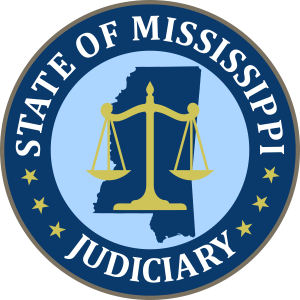The aftermath of transportation accidents can leave individuals facing life-altering injuries. Among the most severe and challenging of these are brain injuries. Transportation accidents encompass a wide range of incidents, including motor vehicle crashes, commercial truck accidents, bicycle collisions, pedestrian accidents, and even public transportation mishaps. When such accidents occur, the damage often goes beyond the physical, affecting victims’ mental and emotional well-being, relationships, careers, and overall quality of life. Brain injuries, in particular, are often unpredictable in their impact and can have long-term consequences that require extensive medical care, rehabilitation, and therapy.
Brad Morris
Attorney




Understanding the legal remedies available to victims of transportation accidents involving brain injuries is crucial. For those suffering from these injuries, the pursuit of legal action can provide the necessary compensation to cover medical expenses, loss of income, and emotional trauma. However, navigating the legal landscape is often complicated, requiring the assistance of a seasoned legal professional who can help victims explore their options and seek justice.
The Complexity of Brain Injuries Following Transportation Accidents
Brain injuries resulting from transportation accidents are among the most complex cases handled by personal injury attorneys. The human brain is an incredibly intricate organ, and even minor trauma can lead to significant and lasting damage. Depending on the severity of the injury, brain trauma can be classified into two categories: traumatic brain injuries (TBIs) and acquired brain injuries (ABIs). Traumatic brain injuries typically occur due to a sudden impact, such as when the head hits a steering wheel or dashboard during a car accident. Acquired brain injuries, on the other hand, occur after birth and are often the result of oxygen deprivation or exposure to toxins during a transportation accident.
Brain injuries can range from mild concussions to severe injuries that result in permanent cognitive impairment, motor dysfunction, and even coma. The symptoms of brain injuries may not always manifest immediately after the accident, leading to delayed diagnoses and treatment. Victims may experience memory loss, confusion, headaches, dizziness, difficulty concentrating, and mood swings. In more severe cases, brain injuries can result in long-term disabilities that affect an individual’s ability to perform everyday tasks, maintain employment, and engage in social relationships.
Legal Remedies for Transportation Accident Victims
When brain injuries occur as a result of transportation accidents, victims have the right to pursue legal remedies that can help alleviate the financial and emotional burdens caused by their injuries. The legal process for obtaining compensation typically involves filing a personal injury lawsuit against the party responsible for the accident. In many cases, the at-fault party’s insurance company will be involved in the settlement process, but if a fair settlement cannot be reached, the case may go to trial.
A key factor in brain injury cases is proving that the injury was directly caused by the transportation accident and that another party was negligent in their actions. Negligence can take many forms, such as reckless driving, distracted driving, failure to adhere to traffic laws, or operating a vehicle under the influence of alcohol or drugs. In cases involving commercial vehicles, negligence may also extend to the employer if it is proven that the driver was improperly trained or that the vehicle was not maintained according to safety standards.
The legal remedies available to transportation accident victims often include compensation for medical expenses, both current and future, related to the treatment of the brain injury. This may involve hospital bills, costs associated with surgery, rehabilitation, medication, and any ongoing care that may be necessary. In addition to medical expenses, victims may be entitled to compensation for lost wages if their injury prevents them from returning to work. Pain and suffering, which encompasses the emotional and psychological toll of living with a brain injury, may also be factored into the settlement or verdict.
Challenges in Pursuing Brain Injury Claims
Pursuing legal remedies for brain injuries can present unique challenges, particularly in cases where the injury’s impact on the victim’s life is not immediately apparent. Because brain injuries can affect a person’s cognitive abilities, memory, and emotional state, it is often difficult to quantify the full extent of the damage caused by the injury. Additionally, some symptoms of brain injuries may be subtle and develop over time, making it harder to establish a direct connection between the accident and the injury.
To overcome these challenges, it is essential for victims of brain injuries to seek medical attention as soon as possible after a transportation accident, even if they do not immediately feel injured. Documenting the injury and its progression over time can help build a strong case that demonstrates the long-term impact of the brain injury on the victim’s life. Moreover, testimony from medical professionals and neurologists can provide crucial evidence in court, helping to establish the link between the brain injury and the transportation accident.
Another challenge is the potential for insurance companies to downplay the severity of brain injuries in an attempt to minimize payouts. Insurance companies may argue that the victim’s symptoms are unrelated to the accident or that the injury is less severe than claimed. In such cases, having a skilled attorney who understands the complexities of brain injuries and can effectively advocate for the victim’s rights is essential.
Steps of a Personal Injury Case Will My Case Go To Trial?Related Videos
The Role of Medical Evidence in Brain Injury Cases
Medical evidence plays a critical role in brain injury cases, as it helps establish the severity of the injury and its impact on the victim’s life. Medical records, diagnostic tests, and imaging studies such as MRIs and CT scans are often used to show the extent of brain damage. Neurologists and other medical professionals may be called upon to testify about the nature of the injury, the likely prognosis, and the need for ongoing medical care.
In some cases, medical evidence may also include testimony from specialists who can explain how the brain injury has affected the victim’s ability to perform daily tasks, hold a job, or maintain relationships. This type of evidence is particularly important in cases where the brain injury has led to cognitive or behavioral changes that may not be immediately visible to others. By providing a comprehensive picture of the victim’s condition, medical evidence helps ensure that the full scope of the injury is taken into account when determining compensation.
Navigating the Legal Process for Brain Injury Claims
For victims of brain injuries caused by transportation accidents, navigating the legal process can be overwhelming. From gathering evidence to negotiating with insurance companies to potentially taking the case to trial, the process requires careful attention to detail and a deep understanding of personal injury law. It is important for victims to have an attorney who can guide them through each step of the process and ensure that their rights are protected.
The legal process typically begins with a thorough investigation of the accident, including obtaining police reports, witness statements, and any available surveillance footage. Medical records and other evidence related to the brain injury will also be gathered to support the victim’s claim. Once the evidence has been collected, the victim’s attorney will engage in negotiations with the at-fault party’s insurance company to seek a fair settlement.
If a settlement cannot be reached, the case may proceed to trial. During the trial, both sides will present evidence and argue their case before a judge or jury. The goal of the trial is to determine whether the at-fault party was negligent and, if so, to award compensation to the victim for their injuries. While many brain injury cases are settled out of court, it is important for victims to be prepared for the possibility of going to trial if necessary.
The Importance of Legal Representation in Brain Injury Cases
Given the complexities of brain injury cases and the potential for long-term consequences, it is critical for victims to have strong legal representation. An experienced attorney can help victims understand their rights, gather the necessary evidence to support their claim, and advocate for the maximum compensation available under the law. Legal representation also helps ensure that victims are not taken advantage of by insurance companies that may seek to minimize their injuries and reduce payouts.
Moreover, an attorney can provide guidance on the various legal remedies available to brain injury victims, including personal injury lawsuits, workers’ compensation claims (if the injury occurred in the course of employment), and claims against government entities (in cases involving public transportation accidents). By exploring all available options, an attorney can help victims pursue the most effective path to obtaining justice and compensation.
Brain injuries resulting from transportation accidents can have devastating and lasting effects on victims and their families. The physical, emotional, and financial toll of these injuries is often overwhelming, and the road to recovery can be long and challenging. However, through the pursuit of legal remedies, brain injury victims can seek the compensation they need to cover medical expenses, lost wages, and the pain and suffering they have endured.
If you or a loved one has suffered a brain injury due to a transportation accident, it is essential to take action as soon as possible to protect your rights. At Brad Morris Law Firm, PLLC, we understand the challenges faced by brain injury victims and are dedicated to helping our clients obtain the justice and compensation they deserve. Our experienced legal team is here to guide you through the process, advocate on your behalf, and ensure that your voice is heard. Contact us today to discuss your case and take the first step toward securing the financial recovery you need to move forward with your life.

